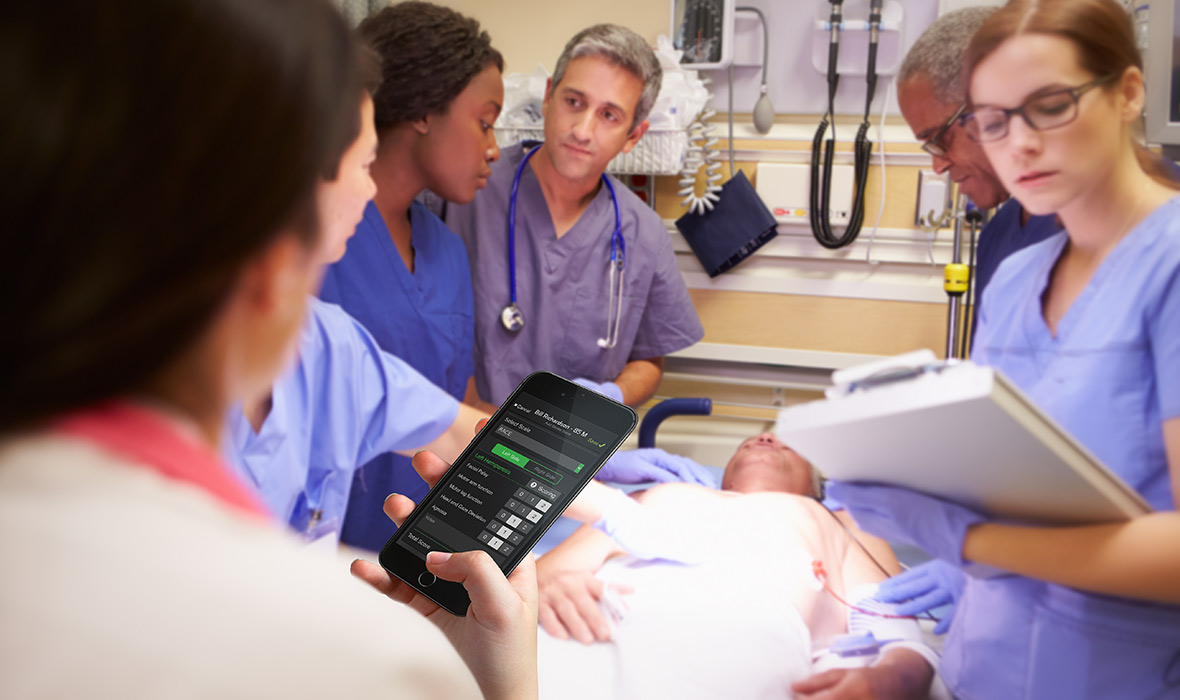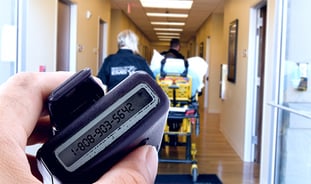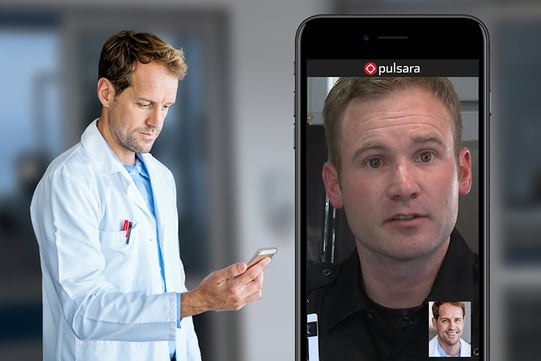Pulsara Around the World - February 2026
January Recap The start of 2026 was on the slow side for our events schedule, with our team heading to the Florida Fire & EMS Conference, the...

EDITOR'S NOTE: Special thanks to Kinsie Clarkson (Pulsara's Product Marketing Specialist, 2020-2025) for writing today's blog post. You can connect with her on LinkedIn.
__
Outdated technology is one of the major factors lurking behind miscommunication in healthcare. Pagers, fax machines, and radios still dominate care spaces, and are the primary method for transmitting important information from person to person. In every other sphere of life, mobile technology has long since replaced these outdated forms of communication—except in healthcare, where every second matters to each patient’s outcome.
Now, the UK's National Health Service has decided to change that.
Earlier this year, the NHS announced that they will require NHS trusts to replace pagers in UK hospitals by the end of 2021. “Every day, our wonderful NHS staff work incredibly hard in what can be challenging and high-pressured environments. The last thing they need are the frustrations of having to deal with outdated technology – they deserve the very best equipment to help them do their jobs,” said Health and Social Care Secretary Matt Hancock.
All UK hospitals will be required to phase out pagers for non-emergency communication by the end of next year. The object of the motion is to replace old, outdated communication methods with mobile technology. Hancock stated: “We have to get the basics right, like having computers that work and getting rid of archaic technology like pagers and fax machines. Email and mobile phones are a more secure, quicker, and cheaper way to communicate, which allow doctors and nurses to spend more time caring for patients rather than having to work round outdated kit.”
 Popularized in the 1980s, pagers are one-way communication devices that can receive, but not send, short messages. In order to send a message, staff must call an automated phone line. While useful for getting a message to multiple people quickly, pagers are less than ideal for clarity or efficiency. There is no way for recipients to tell how urgent the notifications are, or whether they were even the main intended recipient in the first place. At best, this can cause distractions, and at worst, it can interrupt work and waste valuable time.
Popularized in the 1980s, pagers are one-way communication devices that can receive, but not send, short messages. In order to send a message, staff must call an automated phone line. While useful for getting a message to multiple people quickly, pagers are less than ideal for clarity or efficiency. There is no way for recipients to tell how urgent the notifications are, or whether they were even the main intended recipient in the first place. At best, this can cause distractions, and at worst, it can interrupt work and waste valuable time.
While pagers were the quickest way to communicate for many years, mobile technology has far surpassed them in both speed and clarity. SMS texts are much more efficient, allowing multiple people to participate in the same conversation, as well as see who sent which message, and what time they sent it. HIPAA guidelines, security, and connectivity issues have slowed opportunities to adopt it as a primary communication method in healthcare. However, companies like Pulsara have developed secure, HIPAA-compliant platforms that allow physicians to communicate via text, calling, photos, and live video. As those issues are being solved, Hancock feels that the time is right to begin empowering clinicians with cutting-edge communication technology.

Hospitals will need to have their replacement plan in place by September 2020, as well as the infrastructure for making the switch. While they will have the ability to choose which mobile solution to use, UK hospitals will be required to find a communication service capable of carrying secure calls, messaging, sharing images, and syncing with the NHS staff directory. “We want to build a health and care service which is fully able to harness the huge potential of technology,” said Hancock. “This will save lives, support hard-working staff, and deliver the cutting-edge care set out by our Long Term Plan for the NHS.”
To learn more about how leading hospitals are replacing outdated communication methods with mobile technology, check out COVID-19 and the Future of Telehealth: A Conversation with Dr. James Woodson.

January Recap The start of 2026 was on the slow side for our events schedule, with our team heading to the Florida Fire & EMS Conference, the...

Recent research shows how Pulsara was successfully leveraged to connect more than 6,000 COVID-19 patients to monoclonal antibody infusion centers via...

At Pulsara, it's our privilege to help serve the people who serve people, and we're always excited to see what they're up to. From large-scale...